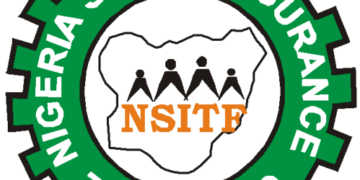While still a work in progress, blockchain technology in the 2020s offers advantages over conventional financial systems as well as prospective solutions for Africa’s unbanked and underbanked. It’s a still-unfolding story as the cryptocurrency industry continues to shake off its Wild West reputation and empower underserved individuals throughout the African continent.
For financially challenged individuals, the blockchain can provide access to a store of value, lower remittance fees, insurance, and even investment opportunities. In time, Africa could emerge as a technology hub where regulators present clear guidelines, businesses build out the blockchain’s infrastructure, start-ups act as trailblazers, and individuals achieve newfound financial freedoms.
Education Is the Key
If any region of the world is ready for tech-led empowerment, Africa definitely fits the bill. Mobile technology, in particular, has had a transformative impact; by 2018, mobile money (peer-to-peer transfers, bill payments, micro-loans, etc.) which gave the country the financial foundation needed for crypto adoption.
At the same time, even with mobile technology sweeping across the continent, there are an estimated 350 million unbanked adults in Sub-Saharan Africa. It’s a persistent issue that cannot be properly addressed through the power of the blockchain without a foundation of awareness and education among Africa’s populace.
Local African governments, by and large, have been indifferent to the cause of educating the populate on cryptocurrency. Furthermore, many of the available educational resources have been written by and for blockchain developers at highly advanced levels.
This is where private businesses like Binance must fill the gaps and lead by example. At a dinner held during The World Economic Forum in Davos, Binance CEO Richard Teng commented on crypto’s role in driving financial inclusion in underserved populations, “Digital assets, conceived as tools to democratize financial access, offer a lifeline for the 1.4 billion unbanked and billions more around the globe underserved by the incumbent systems. In a world where basic financial services are still a privilege, crypto offers a practical alternative to systemic exclusion.”
Teng continued, “Furthermore, in the world’s most inflation-riddled nations, digital assets like Bitcoin and stablecoins – tokens designed to track the value of other assets such as the U.S. dollar – provide a stable store of value in the face of currency devaluation. For families reliant on remittances, crypto slashes fees and speeds up transfers. Meanwhile, decentralized finance (DeFi) tools are enabling loans and savings where traditional banking fails to reach.”
Hopefully, in time Africa’s legislators will perceive the need for widespread education as a cornerstone of financial inclusion for all.
Demonstrating Use Cases in the Real World
To persuade reluctant regulators of the blockchain’s value, private industry and forward-thinking individuals must create real-world use cases. Otherwise, the theoretical impact of decentralized digital finance won’t reach the swaths of the African populace who need it the most.
The real-world applications can be found by those who are willing to look. For instance, according to Fortune, a “blockchain-powered climate insurance pilot delivered preemptive cash payments to rural regions” in Kenya “before drought conditions struck.” Through a combination of satellite data and smart contracts, this program empowered local farmers by reducing transaction costs by 75% and cutting processing times by a whopping 90%.
Other use cases are less dramatic but nonetheless essential. Nathan Lynch, financial crime specialist for Thomson Reuters in the Asia-Pacific and Emerging Markets, observes that the “African markets have really been at the forefront of using simple, existing technology to solve complex financial inclusion challenges,” including the challenge of “providing payment services.”
In this area, one won’t find a more prominent real-world example than the partnership between Zone, a decentralized payments specialist, and the Central Bank of Nigeria’s payments clearinghouse, known as the Nigeria Inter-Bank Settlement System (NIBSS). With the assistance of Zone’s already established blockchain network, the NIBSS can oversee real-time payments at scale, record them on a digital ledger for permanence and transparency, and empower Africa’s users through cost-efficient payment modalities.
Other private businesses and partnerships foster financial inclusion across Africa through cryptocurrency micro-lending services as well as essential banking services, done affordably and across borders. These real-world examples couldn’t have come at a better time, since as recently as 2023, only an estimated 64% of Nigeria’s adults reportedly used formal financial services (i.e., services that one would typically classify as banking).
Achieving Stability Through Stablecoins
In addition, the emergence of stablecoins, or cryptocurrencies pegged to something traditionally considered stable such as a government’s fiat currency, can help to advance financial inclusion in Africa. Nigeria, has established itself as a leader in this regard, as stablecoins in Nigeria constitute roughly 40% of all stablecoin inflows in the Sub-Saharan African region.
Why would stablecoin use be so high in certain African countries? Undoubtedly, the devaluation of local fiat currencies remain a motivating factor. Topsy Kola-Oyeneyin, Partner in Nairobi and co-leader of McKinsey’s Payments Practice across EEMA, explains, “What we’ve seen is people looking at crypto as a way of basically storing their money… “It could be stored as a crypto stable coin, ready to be converted to the local currency as needed. So a kind of devaluation hedge.”
Thus, when local government currencies become volatile, cryptocurrency can actually be the most stable available form of money. This contravenes crypto’s reputation among its critics as unreliable based on volatility patterns of the past.
But then, there’s a common thread here as using stablecoins judiciously requires education, as does leveraging real-world blockchain use cases to address Africa’s financial inclusion roadblocks. The more the people of Africa know about cryptocurrency’s power to effect change for the better, the sooner it can bring much-needed reform throughout Africa’s diverse array of increasingly tech-enabled communities.





